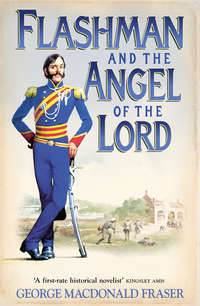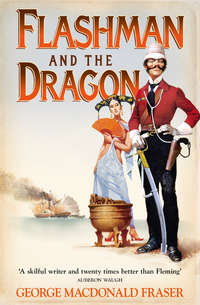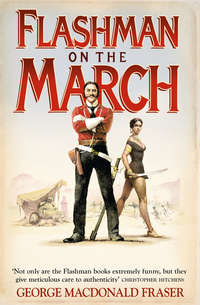
Полная версия
The Candlemass Road
“God send you find the cares of the Church less than I find those of the state, sir priest,” was the Land Sergeant’s greeting to me, whereon I told him that if my cares were less than his, still mine lasted longer, going beyond the grave, to which he answered pleasantly that if I pursued my duties so far I would have hot work of it. So having stropped his wit, he inquired when my lady was expected. “An occasion,” says he, “for ’tis not every day a Dacre comes home.”
At which Master Hodgson coming out to us said he minded those that had come home other wise, slung like a peddlar’s pack over a saddle-bow, and stiffer than January washing, aye, and with a hole in them made by the Land Sergeant himself, and winked at me.
“Unseasonable chat,” says Carleton. “Times change, and if every family that I have touched with a sword were still mine enemies, I’d have few friends to count. In the way of business I let daylight in and blood out of Crookback Leonard Dacre in years past, and the land was the better for it. But that’s by-with. Ralph Dacre was a worthy man, we sorted well, and it befits that I give handsel to his grand-daughter, as officer and friend, offering what service I may.”
I said this was good hearing, since his service was like to be needed, looking keenly on Hodgson as I said it, and he then spoke of the Nixons’ attempt, but reluctantly, it seemed to me. Carleton said he had heard something of this, but it was a scratching affair, a pucker in a corner, and Bell a malcontent whining fellow. “If he has complaint at the Nixons, let him bear it to the Wardens for the next truce day, and get redress. If that likes him not, let him pay his blackmail or face the Nixons sword in hand.” And this was a March officer, bound to keep the peace! But it was “the custom of the country”, so I held my peace, and Hodgson would likewise but that Yarrow made some sneer at him for his fears. “You, bailiff, ye would light the beacon if a reiver let fart within twenty miles,” says he, at which Hodgson in a fine rage called him dandyprat and baboon and I know not what, that knew naught of his office but drink and wenches, and was fit for no more than to cry “Give way!” at Carleton’s elbow. The Land Sergeant stayed their bickering, calling it heat to no purpose.
“Give my lady a week,” says he, “and if she has half her grandsire’s wit she will whip Geordie Bell and such plaint-mongerers out of the parish.”
Thus was Bell’s business put by, as of no account, but when Hodgson came to speak of Archie Noble, that lay bound below stairs for pilfering, and suspicion of the horse that he rode, then were the officers all zeal, and Carleton wagged his head very knowing.
“Wait-about-him Noble,” says he, “a petty trafficker and broken man. I have had my hand near his neck this five year, but never cause to grip him. The horse shall be looked to, there may be others, there may be more. Follow the reek and you’ll find the fire. We have small matters about Gilsland that await answer; he has been about there, he may fit.”
This incensed me, to hear him so eager after a petty thing that overlooked a greater mischief. “Almost I hear you say ‘He will fit’,” I told him.
“And if he fits a halter, Father Lewis, it will be of his deserving,” said he. “We know such sturdy rogues, that will neither work nor want, so shall I bear him to Carlisle.”
“And there he can be borne higher yet,” cries Yarrow, at which callous mockery I turned away from them, yet heard Hodgson, to his credit, intercede again with the Land Sergeant on the matter of the Bells, saying that if he would but send word into Scotland, to them that he knew of, the Nixons might be quieted. But Carleton put him off, saying his word had no weight in Scotland, which was surely a lie, for he was one that had policy and acquaintance everywhere.
I passed into the house, and presently followed the others, for it was ten o’clock and my lady still stayed for, so the bailiff, to refresh the officers, had wine brought in and a few fruits pitted and wizened with keeping. Master Carleton looked askance with a Heigh-ho and sat him down out of patience, slapping his gloves on his thigh, and spoke crossly of her late coming, for the affairs of the March could not wait, for a lady ever so noble, and “it is the curse of their light living down yonder that they think others have no greater care. Time beats a swifter measure with us than they keep in Greenwich Palace. Aye, well, my masters, she may learn, she may learn.”
I was so nettled to hear his talk of care, from one that cared not for that he should have cared for, that I said boldly she had much to learn indeed, and the border was like to prove a hard school, where officers turned a blind eye on wrongs done a poor man, with not so much counsel as should stand him in small stead, and little justice save for the rich and strong, and that my heart smote me for her in her inheritance. To which he said but “Chut!” and withered me with his eye. Not so the braggart Yarrow.
“Gin I had her acres I’d learn me fast enough,” quo’ he. “Devil the broken man or family rider should set hoof on my ground.”
“Fine talk in Askerton Hall,” says Hodgson, that could nowise abide the deputy. “Wait thou, till thou’st ta’en a trod over Hermitage water, and seen Elwood* lances on the crest at your back, or played cat-and-mouse wi’ Armstrongs in the dark on the Black Lyne—”
“Sitha, blubberguts,” cries young Yarrow, “I’ve ridden trods enow, and sweated mair blood than thou hast fat, thou tunbelly, thou, and seen your Elwoods and Armstrongs, aye, and seen their backs, too!”
“Aye, and broke eggs wi’ a stick,” says Hodgson, all a-grin. “Good health, Anton, when next Ewesdale rides your way. By, we’ll see grand things!”
They might have breathed themselves in such windy exchange, but now came the boy Wattie, flying: “The cotch! The cotch’s coming! Father Lewis, my leddy’s on the hill!” and more, in joyous frenzy, to quiet which I bade him see to the fire, it being near gone out again.
So we went out to meet her, Yarrow brushing his beard and setting his baldric so, and steel bonnet on his arm, and Hodgson in some trepidation, and myself, but Master Carleton last to rise, most leisurely patient, yet contrived to be ahead of us all, standing forth of the door. And here a great cotch, with postillions but no riders, and the kitchen folk come and the children squeaking, and all on tiptoe to see the great lady from London, with hollering of “A red bull! A red bull!” as though it had been a foray, and not my lady come into her own. Yet it seemed to me she came with no great state, but the one cotch and two postillions, and so through the gate, and Master Carleton ready to doff and be first at the cotch door, and the bailiff coughing at my elbow, hem-hem, and scratching with his feet, and Yarrow all smiles and standing high, and myself afire to see this prodigy so long expected, and yet in the moment, that should have been so glad, felt an oppression of the spirit, I knew not why, unless it was with my contemplating of the sorry condition of all that she came into there. Howbeit, I remembered my office so long neglected, and was a priest again for the time being, though little worthy of that name. And so I fell a-praying for her, and all about me the cry of “A Dacre! A Dacre! A red bull! A red bull!”
* One of the many spellings of “Elliot”
Chapter 3
NOW, IF MASTER CARLETON hoped to puff his consequence to my lady and the world, by making show to hand her down and conduct her, he had little good of his ambition, for ere he had his bonnet off the cotch door was wide and she was by him and indoors in the blink of an eye, so that we had barely but the whisk of her cloak, and he with his hand out, into which her waiting woman a stout dame that followed after was like to give her basket, but that he made haste to withdraw in some snuff. So we must all in again, not a little abashed, and wondering at her suddenness, so that none put himself first, and ’twas myself, with Hodgson twitching at my sleeve, that led into the hall, and Master Carleton aloof behind, with, as they say here, his nose out of joint.
My lady stood before the fire, which was all but out and reeking, in which it matched her mood, as I soon saw. Yet was I mum at first, in awe of her appearance, which I had not seen such for many a year. She was of a middle height but lordly carriage, very straight and slender, and, as I thought at first, of a mould to beguile Solomon himself, so fair and pale of face like an angel in a picture, with great eyes of darkest blue, and for her hair, it was white shining gold like an infant’s, which in their elders is commonly artifice, but I think hers was not. A seeming beauty, though on looking narrowly at my more time, her nose was long and her chin something pointed, yet was she handsome enough for all that, and could smile right prettily, having excellent teeth, though her wonted mien was cold and very proud, as now, with thunder between her brows. For her attire, it would have sat upon a queen, being of rare richness, to wit, a long mulberry coat with gold buttons, open at the throat, for she wore a little ruff all sewn with pearls, and above a fur beaver, daintily cocked, and on her hands a muff of like fur sable, and beneath a fine green gown shotten with gold flames that was like to set our country ladies a-gape. So was I mum, staring at such a portent female, in awe not only of her person and apparel but of that high spirit that shone from her as would have overborne the boldest, young and slight though she was. We had a taste of her salt when, I having remembered myself and bade her welcome, she gave me but a glance and cut me short with:
“Which of you is my bailiff, Hodgkin?”
At that the bailiff, dismayed to hear himself singled so bodefully, answered haltingly that his name was Hodgson, at her service, at which she demanded coldly, had he care of her tenants, to which he assenting, she let drive such an angry blast as set his teeth a-chatter, nor minded the boy Wattie then coming in with logs, who dropped them clattering at her feet, and swore, and scrambled there before her, so much was she moved.
“And will you tell me, bailiff,” quo’ she, “what care you have, when I find myself petitioned on the road by a poor clown with a bloodied head, got of Scotch robbers, that came to you for help, whereon you set about him cruelly, and drove him forth with kicks? Well, sirrah – aye or no?”
Hodgson, seeing that George Bell had been beforehand with his grievance and kindled her to a fine rage, fell a-tremble, and mumbled that if she would hear him – and there his courage failed and he stood shuffling.
“What I would hear,” says she, dangerously soft and her finger tapping, “when you have done shuffling and got your tongue, is aye or no. ‘Aye, but’, you say? It is very well. We shall talk anon, Hodgson or Hodkin – nay, never stir, shuffle yet a while.” And to Wat, at her feet: “Your logs will not get up of themselves, fellow! Gather them, boy, to it!”
Then she threw off her back cloak and muff, and looked about, while her maid unbuttoned her long coat, but gave no heed to us who stood dumb, and seemed in no great delight of what she saw, playing with her gloves the while.
“This is all your charge, Susan,” says she. “Wine and water, and marchpane, and bid Master Lightfoot in to me. See that this lout mends the fire without putting the house alight, bid the grooms look to Angel and Lycidas, for these roads are fit to kill poor beasts, and Angel limps o’ the right forefoot.” And then of a sudden to Wat, that was dropping timbers broadcast, “Oh, try again, boy, and if you drop ’em on yon Hodgson’s toes it skills not, he shall skip of his own accord presently! ‘Aye, madam, but’, forsooth! Susan, bring mine own cup, and others for these gentlemen, for I doubt if there is a pot uncracked this side of York. Has this place been aired in a twelvemonth? If we are not to suffocate, put some sweet herbs on the fire, we had as well be in a stable!”
All this in a rush of words, when, seeing my amaze, she said more civilly: “Oh, sir, you wonder that I seem to take your welcome amiss, but I am in a rare fury, to see a poor man hurt, and a fat rogue blinking that gives no remedy, or even excuse, oh, it makes me mad! I thank you kindly, and these gentlemen, we shall know each other anon.” And at once falls railing at Wattie, for his handlessness. “Oh, fellow, kick them before you like a football, so shall you be done sooner! Susan, bid one help him, afore he does a mischief! Now, sirs, we shall have order presently, I dare say. You, sir (this to me), by your habit should be my grandsire’s papist priest. Give you good day, sir, for I will not call you father, but thank you for your courtesy. You may make these gentlemen known to me.”
So I did, first Master Carleton, who with a fine bow would have come forward at leisure to address her, but she marred it for him by turning aside to Susan, which may have been by design, for it took him in his preamble, so must he start again, while my lady gave sweet apology. And then Yarrow, who smiled on her boldly and preened himself, whereat she began to eat her marchpane and bade Susan give refreshment to all of us there, and to Master Lightfoot, her man of affairs, who was come in, one of your portly sleek flat-caps with a wealth of words on both sides, not aye, not no, but mayhap, of which we had surfeit when she put to him the matter of Bell, for she seemed to set that before all, that had not yet changed her shoon, but sat forward in her great chair, cup in hand, while they strove to make all clear to her.
Now, you have heard it and need not that I weary you with it again, but I, taking no part, yet lightly marked how each spoke his side in it, save Yarrow, who was silent and left off not gaping at her like a clown at the fair when he sees the tricksters. Hodgson made poor shift to defend himself, and Master Carleton must needs instruct her, but in a lofty sort that I could see had her teeth on edge, and Master Lightfoot confirmed him on blackmail, how, albeit it was an unlawful and hateful thing, yet were poor men wont to pay, at which she cried out on them, was this how the law was kept, and Master Carleton pointed to redress before the Wardens, and that it was no great matter, and “the custom of the country”, and no fault of any, save Bell himself, that looked to move my lady’s pity. But ever she kept to the point, a very Portia, that here were fell thieves harassing a tenant of hers to his hurt and ruin, and how was it possible that a creature of the Dacres should pay criminal rent to such leeches, and no help at law or any way. And through all my poor bailiff knuckled his head and nay-but-madamed her, and the Land Sergeant’s head higher by the moment, and Lightfoot wagging on to try the patience of a saint, and she no saint that sat there, but a lady justly moved, that I was right glad to see, yet sorry to see her at such a rough education as she could hardly believe, that here were Queen’s officers of the peace, but no help from them. For Carleton budged not from saying it was not in his charge, which was for Gilsland only, not Triermain, at which the bailiff shot me a great wink of the eye, as he would say “Said I not so?”
So we had to and fro of “Nay, will my lady but hear me, she doth me wrong” and “Peace, rogue, you kicked him black and blue, go shuffle again!” and “Under correction, madam, here is great ado for a snivelling arrant fellow that hath brought the mischief on himself” and “a God’s name, sir, are people of mine in thrall to Scotch thieves?” and “I did not invent blackmail, lady, nor the sorry state of the world”, and “in truth, my lady, the Land Sergeant has the right of it, ’tis matter for the Wardens”, and on that conclusion they fell silent, my lady a-weary and small of a sudden, and bade them bring in Bell that she would answer him.
While we waited, she said, “Susan, this chair likes me not, I had better be on the rack. Nay, let it be, the others look no better. And for dust, my barn at Blackheath is cleaner! Are there no maids in this house?” But Bell coming in, and a sorry snail he was in his rags and bloody bandage, she left off and spake him kindly, asking for his head.
“Poorly, my good lady,” says he, and cringed. “But poorly. I am not young, I cannot take these knocks, please you, my lady.”
She compassioned his ill-usage, and said the gentlemen had heard of it, and the Warden would see justice done on the Nixons. But at this he raised a great cry of terror that he looked not for justice, but security. “’Tis not what they’ve done, my lady, but what they’ll do yet! They have sworn to ride on me again, and my folk and our poor beasts, aye, this night! They’ll take and burn all, because I cannot pay Ill Will’s tribute! Oh, my lady, I fear for my life!”
Now it was news to her that peril threatened him so close, so up starts she at Carleton, demanding was this so, and where were his watches and troopers, or was this the nether side of Russia, that a man’s life and goods could be torn away? The whiles Bell pawed at her shoe, crying, “Ill Will will have us, lady, oh, sweet lady! Liddesdale never promised but performed! He’ll have us! I’m Dacre’s man, and served your grandsire,” and the like. The Land Sergeant said again ’twas not his charge, and if he rode to every hamlet that feared a raid o’ the Scots, he would never be done, and this being so, it behoved men to pay or fend for themselves.
“For themselves?” cries my lady, white as the wall. “Look at him, sir, can he fend for himself or anything? Or do you mean that I, his landlord, must take the field and fight, because your law cannot or will not?” She swore the Queen should know of it, and Carleton said, curtly enough, that Her Grace knew already. Lightfoot interposed that there was much ill, and much wrong, on the border, but it must be looked to, aye, and redress made, given time and much labour to perfection, and anon and anon, until she cried him down, and stood biting her lip to find herself at a loss what to do, and vented her rage on poor Wattie, who was at the fire, bidding him go clatter elsewhere. Then she turned on Carleton, speaking more composed, but still moved inwardly.
“Master Carleton, you cannot aid me with your office, it seems. Yet you were my grandfather’s friend, and you have a name as a stout gentleman. Will you, then, not aid me as a friend, that am in sore need? I ask not the Land Sergeant, but your own self, sir.”
He would need a heart of stone that resisted her (for she was fair, and brave in her distress), and then I saw Tom Carleton as near out of countenance as ever I saw, for he was a proud man, and a valiant, and but for his own policy I believe had offered his sword. To do him right, I believe he weighed in his mind what might come of fronting the Nixons, and what mischief would follow, and would have seen Bell and Triermain in Hades that put him to the choice. But a politician always, he said he might not, for it lay not in his charge, and would have spake more but she turned straight to Anton Yarrow and asked of him the same. And he stood dumb, and looked askance at Carleton, and said he might not, for he was bound by his office likewise. It choked him to say it, for he would fain have said Aye.
To my astoniment, she turned to me, and said something could be done, surely. “You are a priest,” says she, “no matter what persuasion, and were these pillagers as cruel and wanton as demons, they will hardly strike where the Church protects.” She said it so piteous, and her so proud, that I was near to tears to nay-say her.
“For when I was first in this country, I did such a thing, offering myself as a sacrifice, even, for the Lord’s sake. And, lady, they laughed and rode by, crying ‘Bless us, father’, and when I cursed them, they laughed again. Oh, good lady, if you have seen the baited bear snap his chain and rush among the mastiffs, ravening, you would as well reason with him as with Ill Will Nixon and his folk, when they have a foray before them.”
She made no answer, but sat her down, and fingered the crumbs upon her plate, and then called up Bell again.
“I am but lately come, and all at sea here, Master Bell,” says she. “But this I tell you: you shall have security of me, your liege lord. So go up now to your place, and none shall harm you. Go.” And when Bell had slobbered his thanks, and blessed her, and her grandsire, and all else that came to his mind, and gone away in wonder, rejoicing, she looked about full calm, and when Carleton and Lightfoot would have remonstrated at her, told the latter to confer with the bailiff, and give her news of the estate anon. To Carleton she inclined her head and said:
“Master Carleton and Master Yarrow, we thank you for your courteous welcome, and look to see you again. Susan, take away my plate, and see that all is ready overstairs, for I would rest awhile. And bid our ragged Prometheus see to the fire, and build it up, for it is shrewd weather.” And gave a dainty little yawn behind her hand, and fell to looking on her nails, but negligently. Carleton, being in dudgeon to find himself thus dismissed, yet kept his countenance, and giving her his leg would have gone forth silent, but the bailiff saying he had business with the Land Sergeant, by her leave, she gave him joy of it, adding that so it was business that required him not to do his duty, he should prove helpful indeed.
Конец ознакомительного фрагмента.
Текст предоставлен ООО «ЛитРес».
Прочитайте эту книгу целиком, купив полную легальную версию на ЛитРес.
Безопасно оплатить книгу можно банковской картой Visa, MasterCard, Maestro, со счета мобильного телефона, с платежного терминала, в салоне МТС или Связной, через PayPal, WebMoney, Яндекс.Деньги, QIWI Кошелек, бонусными картами или другим удобным Вам способом.








